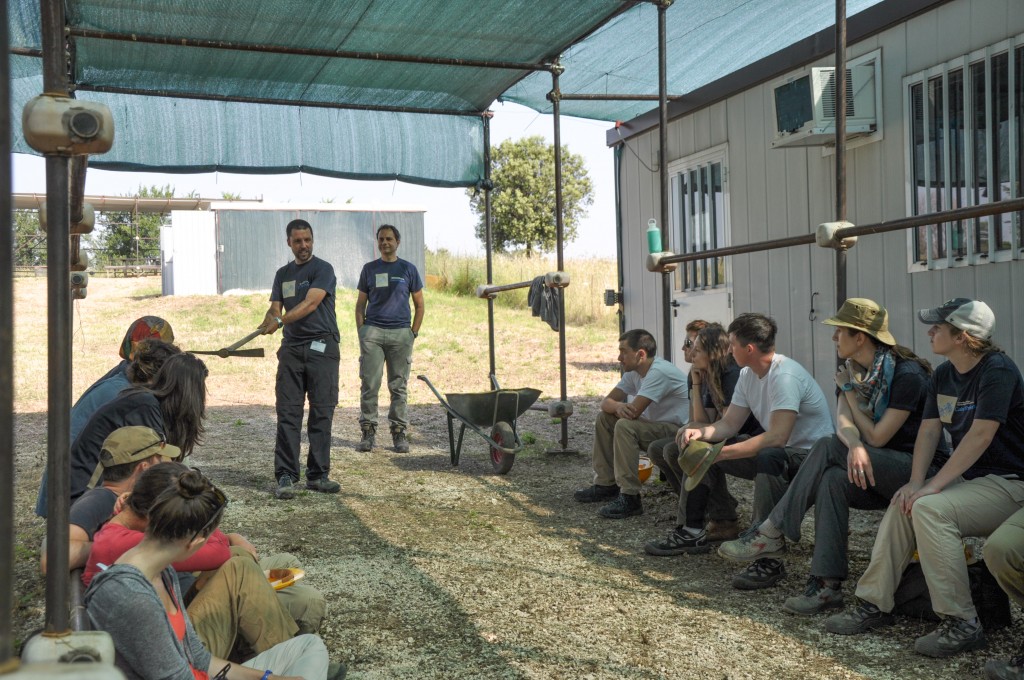
The safety of all students and staff on site is naturally one of our top priorities.
First, some important considerations about the archaeological environment:
- Dust, pollution, and smoke from wildfires may aggravate allergies and/or lung conditions.
- Temperatures are regularly in the 90s or low 100s Fahrenheit (32-38 Celsius) and there is limited access to shade during working hours.
- Work includes heavy lifting and repetitive muscular exertion.
- The typical excavation posture is squatting or bending. It is rare for excavation contexts to permit sitting or lying down while working.
- Trenches are normally accessed by ramps and some additionally require navigating narrow wooden walkways.
- Tools used during excavation include both small and large pickaxes, trowels, brooms and dustpans, and shovels.
- Excavated soil is removed by means of buckets and wheelbarrows.
- Some excavation contexts can be narrow and enclosed.
Safety on the dig…
By adhering to basic safety standards set forth by the Italian Government, we can focus more of our attention on the excavations at hand and the pedagogy of the experience.
Steel-toed boots are provided to all personnel once they reach the site, and must be worn at all times. Anybody working in the immediate vicinity of a wall higher than 1.5 meters is required to wear a hardhat, which is provided along with the boots.
Before volunteers ever reach the excavation trenches, they are given a comprehensive safety overview which covers all of the equipment they will be handling, including pickaxes, shovels, and wheelbarrows. In addition to equipment safety, students are reminded regularly about the importance of adequate hydration and limiting sun exposure. Hats are strongly encouraged on site, and students are urged to monitor their energy and take small water/shade breaks as conditions necessitate.
Off-site safety is also important to The Gabii Project, as this time is unsupervised. Early in the first week, students are briefed on safety concerns in Rome by a member of our staff. This presentation includes general information about alcohol and drug use, sexual health, and being aware of one’s surroundings, as well as specific warnings about neighborhoods and establishments to avoid.
The prioritization of safety as a basic function of both the excavation and living in Rome ensures that most of students’ attention can be focused on the more exciting parts of both!




